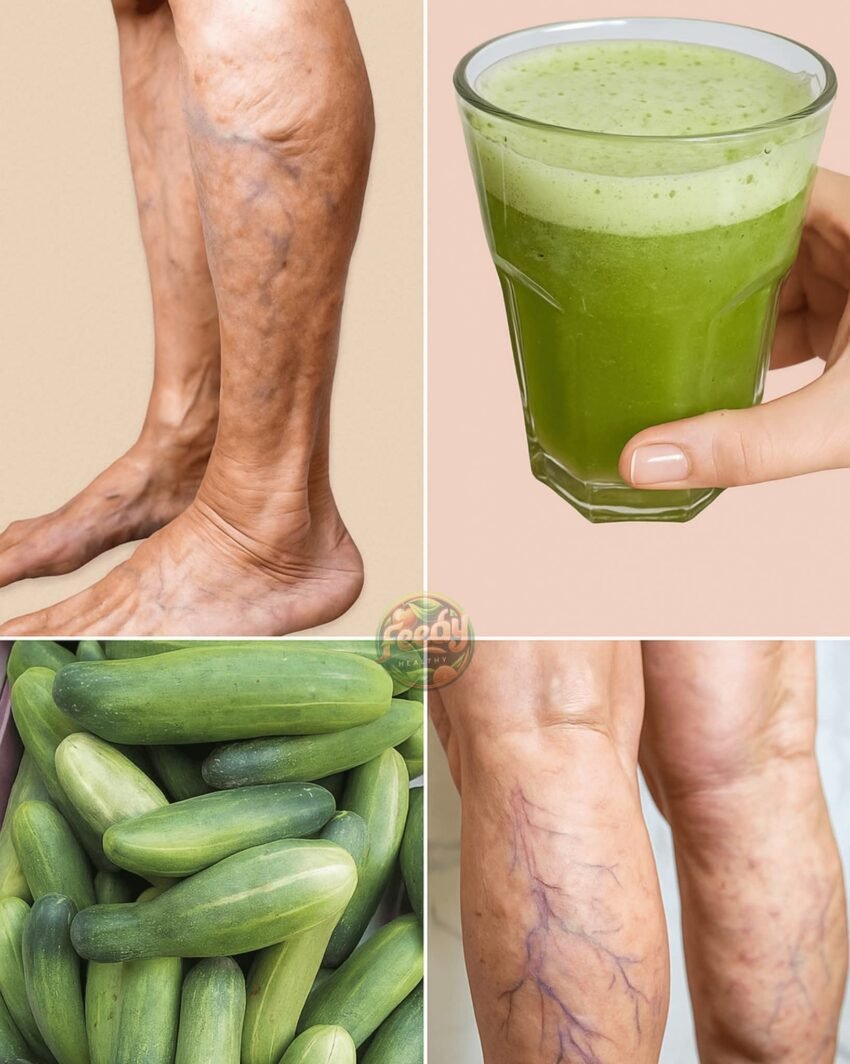Cucumbers are a hydrating, low-calorie vegetable that can support vascular health—making them a useful dietary addition for people managing varicose veins. Here’s a look at the benefits of cucumber for varicose veins, followed by a simple, supportive recipe.
✅ Benefits of Eating Cucumber for Varicose Veins
-
Hydration Support
Cucumbers are 95% water, helping to keep the body well-hydrated, which can support healthy blood flow and reduce vein swelling. -
Rich in Antioxidants
They contain flavonoids and tannins that fight inflammation, which is a contributing factor in varicose vein formation. -
High in Silica and Vitamin K
-
Silica supports connective tissue strength.
-
Vitamin K helps in maintaining blood vessel health and reducing bruising and swelling.
-
-
Natural Diuretic
Helps reduce fluid retention, which may ease pressure on veins. -
Improves Circulation
The potassium in cucumber helps regulate blood pressure and supports circulation—key for preventing varicose veins from worsening.
🥗 Cucumber Anti-Inflammatory Salad Recipe for Varicose Veins
Ingredients:
-
1 large cucumber (thinly sliced)
-
1/2 red onion (thinly sliced)
-
1 small avocado (cubed)
-
1 tbsp fresh lemon juice
-
1 tbsp olive oil (extra virgin)
-
1 tsp apple cider vinegar (optional, for circulation support)
-
1 tbsp chopped fresh parsley or mint (anti-inflammatory)
-
Salt & pepper to taste
-
Optional: sprinkle of chia or flax seeds for omega-3s
Directions:
-
Combine cucumber, onion, and avocado in a bowl.
-
In a small cup, whisk together lemon juice, olive oil, and apple cider vinegar.
-
Pour the dressing over the salad and mix gently.
-
Add parsley, salt, pepper, and optional seeds.
-
Serve immediately or chill for 15 minutes for enhanced flavor.
💡 Tips:
-
Eat this salad 2–3 times per week for ongoing circulation support.
-
Pair with foods rich in vitamin C (like oranges or bell peppers) to strengthen vein walls.
